What does an educational psychologist do?
Posted on: September 8, 2023by Ben Nancholas

Educational psychologists (EPs) support children and young people, as well as their families and schools, by using psychological theory, research, and techniques to improve their learning outcomes, communication skills, and emotional and social wellbeing.
Educational psychologists often work with learners who have special educational needs. This includes people with:
- learning difficulties, such as dyslexia
- behavioural conditions, such as attention deficit hyperactivity disorder (ADHD)
- developmental disabilities, such as autism.
Through their use of assessment, monitoring, and evaluation, educational psychologists can help all children and young people receive a full, well-rounded education, supporting their learning as well as their social, behavioural, and psychological development.
Why are educational psychologists important?
Educational psychologists are an invaluable part of the wider educational system, helping to ensure children with special educational needs can participate in supportive learning environments that promote healthy child development. They can support children dealing with a wide range of requirements or challenges – from concentration difficulties and emotional, social, and behavioural needs, to physical disabilities and sensory needs – and help them achieve their full potential.
A comprehensive educational psychology service can also impact children’s learning in other positive ways. For example, the British Psychological Society (BPS) recently published a paper on the role of educational psychology in promoting inclusive education:
“Psychologists can use their skills in applying psychology to help identify, assess and resolve issues using approaches that opt towards collaborative solutions, drawing upon the resources of children and young people, their families and communities, education staff and professional agencies, in order to facilitate inclusive pedagogies.”
What are some of an educational psychologist’s responsibilities?
The role of an educational psychologist is as varied as the learners and pupils with whom they work.
Typical duties include:
- Working directly with children – in both one-on-one and group settings, as well as in collaboration with other educational and healthcare professionals – to support their educational achievements.
- Assessing children’s needs – both educational and emotional – using a variety of techniques, such as observations and learning assessments.
- Consulting and collaborating with parents and other educators, as well as multi-agency teams, to gather information and determine the best methods for supporting the learning and development of individual children.
- Diagnosing learning disabilities and difficulties.
- Designing and developing appropriate interventions and strategies for learning, as well as therapeutic and behavioural management programmes.
- Supporting schools and families to ensure that programmes are successfully implemented and maintained.
- Overseeing referrals from or to other agencies or professionals, such as the relevant local authority’s senior or principal educational psychologist.
- Training educational professionals, such as teachers and teaching assistants, in areas relevant to educational psychology, such as wellbeing.
- Conducting new research in educational psychology and developing new psychological theories.
- Providing expert consultancy and input into new educational policy and programmes.
When carrying out many of these responsibilities, educational psychologists work in consultation with all of the other people and professionals who are involved in a child’s education and care. This includes:
- parents and carers
- teachers and other school staff, such as Special Educational Needs Co-ordinator (SENCo) professionals
- social workers and other social care professionals.
- doctors
- education officers
- speech and language therapists.
Where do educational psychologists work?
According to the Association of Educational Psychologists (AEP), which is the trade union and professional association for educational psychologists in the United Kingdom, educational psychologists typically work in the public sector.
Common employers include:
- local authorities, particularly for local authority children’s services
- NHS trusts
- Child and Adolescent Mental Health Services (CAMHS)
- schools and school groups
- nurseries and other early years and pre-school settings
- voluntary and charitable organisations
- social enterprises
- private consultancy firms
- universities and colleges, where new educational psychologists are trained.
Other educational psychologists are self-employed and work as sole practitioners and private consultants, or for private practice partnerships.
What is the difference between an educational psychologist and a school psychologist?
Just as education and schools are closely linked but different things, so too are educational psychologists and school psychologists. School psychologists are focused exclusively on learning within a school setting, so their work is limited to certain age groups, while educational psychologists take a broader view, and work with young people from 0 to 25 years – and may even work with older adults.
However, it’s worth noting that in the United Kingdom, educational psychology typically encompasses aspects of school psychology, rather than treating them as separate areas of practice.
What are the qualifications required to become an educational psychologist?
Educational psychologists are typically required to complete a psychology degree or conversion course that is accredited by the British Psychological Society in order to gain Graduate Basis for Chartered Membership (GBC). The rules for further training vary within different countries of the United Kingdom, but to practice as an educational psychologist in the UK, all EPs must be registered with the Health and Care Professions Council (HCPC).
Educational psychologists also typically embed continuing professional development (CPD) into their roles, as it’s necessary for retaining their HCPC registration. This can include a variety of further learning and development activities, such as:
- post-qualification courses
- learning new therapeutic tools and techniques
- mentoring trainees
- developing a specialism, such as expertise in a particular age group or condition
- learning and adapting new technologies into educational psychology practice.
Enhance classroom experiences through educational psychology
Develop the psychological skills to become an exceptional educator with the 100% online MSc Educational Psychology distance-learning from North Wales Management School, part of Wrexham University.
This master’s degree has been created to equip educational professionals – including teachers, head teachers, school managers, additional learning needs coordinators, and support staff, among others – with a comprehensive understanding of the role of educational psychologists, as well as the core psychological concepts that underpin practice in the psychology of education.
You will learn how to apply psychological evidence to shape and improve classroom and educational practice, and develop knowledge in key areas of educational psychology, including:
- child and adolescent development
- behaviour disorders and the role of resilience
- additional learning needs and giftedness
- psychology of health and wellbeing
- forensic psychology
- understanding of clinical and psychometric assessments.





